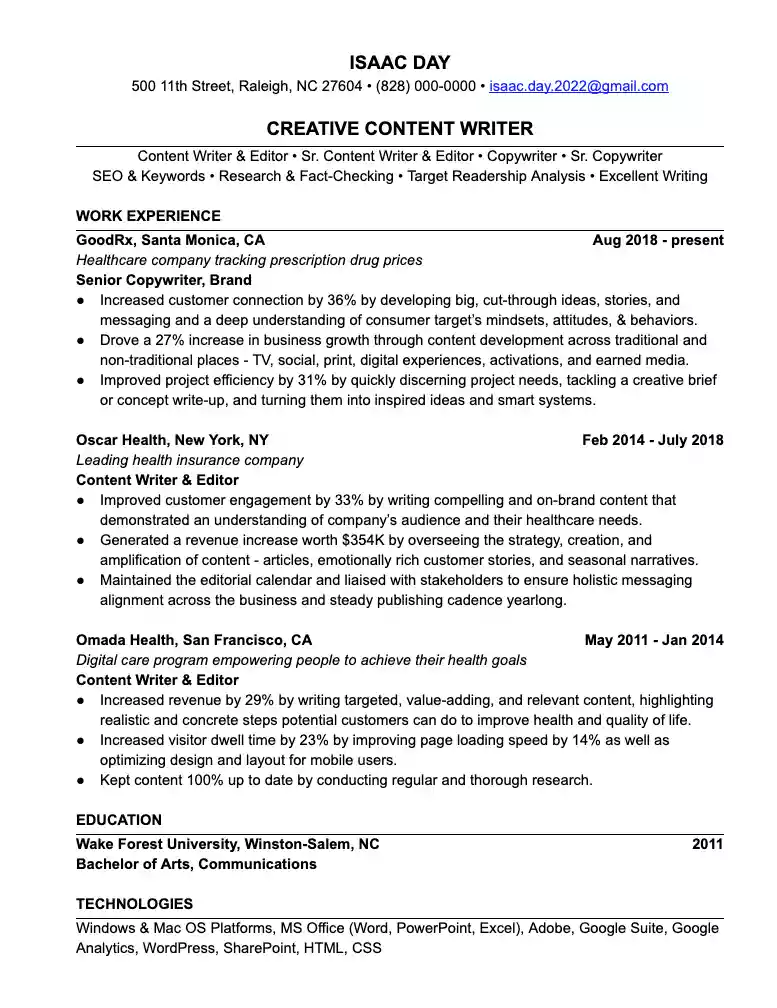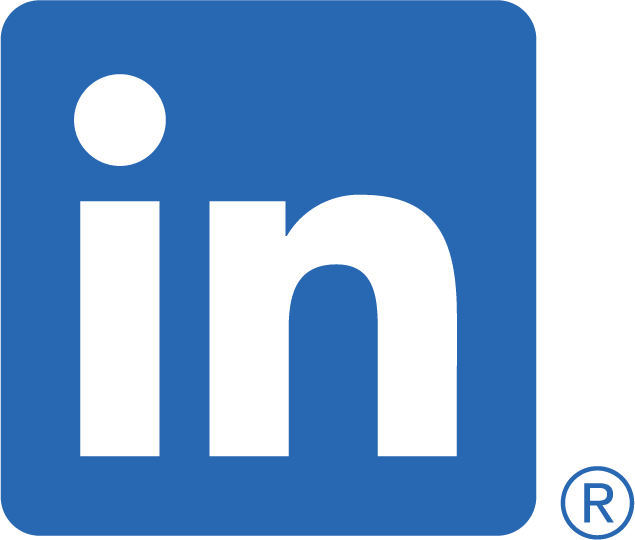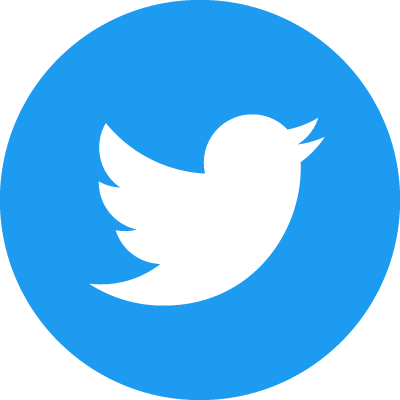Instrumentation Engineer Resume Example
Optimize your new resume right now with our simple Instrumentation Engineer resume template. Want to get interviews even sooner? Get Leet Resumes to write your resume for free.


Your guide to writing a great Instrumentation Engineer Resume
Automation is virtually impossible without the IO that you’re responsible for, but getting those sensors and actuators up-and-running is far from an automatic process. You may be a master of using technology, but that doesn’t mean you’re afraid of hard, manual work either.
Especially in today’s accelerated manufacturing environment, Instrumentation Engineers have to straddle the line between understanding and maintaining legacy equipment while also integrating cutting-edge tech like the industrial internet of things (IIoT). You’re a lifelong learner who also has deep expertise in your field.
From installing new equipment to programming logic controllers to working alongside other engineers, you’re constantly finding ways to improve manufacturing processes to make them cheaper, more efficient, safer, or more reliable.
Setting up hardware and integrating systems is only a small part of your job. You know that your people skills are just as critical as your technical ones. You need to communicate effectively, both to technicians on the factory floor and to the stakeholders that you report to.
You may be great at communicating at work, but that still doesn’t mean you’re totally comfortable with writing a great Instrumentation Engineer resume. Don’t worry though. Leet Resumes will help you to craft an interview-worthy resume in no time.
Since your resume is how you get your foot in the door, you want it to be as good as it can be. That means keeping it short and making each word count. Highlight your unique skill set, showcase your strengths, and, most of all, demonstrate how you’ve improved production lines through your previous work.
Ready to jump in? Take a look at our free Instrumentation Engineer resume example to get an idea of where you’re going. Then follow our Instrumentation Engineer resume template, and you’ll be well on your way to a fantastic resume.
Be sure not to forget that you can ask Leet Resumes to write your resume on your behalf. Our resume pros are ready to help you to achieve your career goals, all at no cost to you! Click here now to begin.
General guidelines for writing your resume
First off, you should avoid paragraphs on your resume. The person reading your resume isn’t looking for a novel or an op-ed; instead, go for bullet points and simple sentences. This will help them to skim through your resume and get you closer to the goal of conveying why you’re the best person for the job in as few words as possible.
Another thing to keep in mind is that you want to avoid unusual fonts. All you need is Arial or Times New Roman. Don’t put any pictures, colors, text boxes, or confusing additional columns either. Keep it simple.
The reason being that these unnecessary cosmetic elements make it harder for your human readers to quickly go through your resume, and they can also confuse the AI systems that many employers use to sort through resumes. If the applicant tracking system (ATS) software gets a document that’s formatted in a way it doesn’t expect, its logic can quickly break down, and that’s bad news for you.
Lastly, don’t include your LinkedIn unless you can commit to checking on it every day. It wouldn’t be good to miss a time-sensitive message.
Could I outsource my resume to the pros?
Whether you’re just a busy person or you want to be 100% sure that your Instrumentation Engineer resume is the best that it can be, there’s no shame in getting an expert to write it for you.
How to format a great Instrumentation Engineer resume
Decided to give writing your own resume a go? Good idea! Nobody knows your prior experience and career objectives better than you.
The best way to begin is with Leet Resume’s Instrumentation Engineer resume template. Just fill in the blanks and you’ll be well on the way to an interview-worthy resume.
Here’s the layout:
- Name + Contact
- Professional Headline
- Professional Summary
- Work Experience
- Education
- Keywords
Name + Contact
Engineers like you proceed methodically through a problem, no matter how trivial each step may seem. Beginning your resume is similar.
Start by writing your name at the top of the document in a little bit bigger font, then put your contact information right underneath it. Usually this will include your cell phone number and a professional email address—nothing silly or inappropriate, it should go without saying.
No need to link to any of your social media profiles.
Professional Headline
Your professional headline is brief, only three to five words. It’s basically a short advertisement for your career that invites recruiters to keep reading your resume. Since it should be eye-catching, don’t just write “Instrumentation Engineer” and leave it at that.
Instead, stand out by highlighting what makes you unique. For instance, you could write “Industry 4.0 Instrumentation Engineer” or “Pharmaceutical Manufacturing Instrumentation Engineer.”
This will help them to see what makes you a unique candidate and why you’re exactly what they’re looking for.
Professional Summary
An extension of the Professional Headline, the Professional Summary segment of our Instrumentation Engineer resume template expands—briefly--on the job you’re after, the skills and strengths you can offer them, and career highlights that showcase your unique work history.
Format it like this:
- Three to five job titles that you would accept
- Instrumentation Engineer skills you have
- Instrumentation Engineer accomplishments and/or achievements (optional)
- Awards and/or promotions (optional)
Although lines three and four are optional and may not apply to everyone, they still represent a great opportunity to differentiate your resume from the rest of the pack. They demonstrate how you add value to the organization and make a real difference—and that’s just what they’re looking for.
Work Experience
No resume would be complete without a section work experience, but what many don’t realize is that they need to go beyond the basics. Of course you want to list your employment history, but don’t stop there. Don’t simply repeat the daily duties and responsibilities that every other Instrumentation Engineer could write as well.
Make an impact by focusing on successes and accomplishments. If you can point to specific instances where you improved outcomes, saved money, created a safer environment, or had any other positive impact, be sure to include that here. Then provide the data to back up your claims.
Use numbers when possible
Do so by including plenty of numbers in your resume. Just like numbers are essential to your engineering work, they also help the hiring manager in their search for a new engineer that they can count on to get the job done.
Strong action verbs
Also begin all of your bullet points with an active verb, such as designed, developed, or integrated. It helps them to skim your resume faster, and it demonstrates your motivated and active personality at work.
Be honest about dates
It’s a mistake to lie about or omit any gaps you may have in your work history. Just be honest! These gaps are more common than you might believe, and they’re rarely a deal breaker—especially compared to losing trust because they think you’re trying to hide something.
Education
This part of the Instrumentation Engineer resume template is all about your education. All you have to do is list any and all degrees that you’ve earned and what institutions you earned them at. This is also the place for certifications.
Don’t write down any degrees that you haven’t fully obtained unless you’re still in school and working towards them.
Keywords
This section is your last chance to leave a lasting impression that will make them wonder how soon they can get you in for an interview. It’s a great place to highlight the soft skills and hard skills that make you an obvious choice for the job.
Here are some recommended keywords for Instrumentation Engineers:
- Data collection and analysis
- PLC programming
- Sensor calibration
- Communication
- Systems integration
This is also the place to highlight specific technologies that you have mastery over. Whether that’s Ladder Logic, Python programming, electrical engineering software, or computer vision systems, be sure to showcase what tech you feel confident installing and maintaining. Also be sure to include standard productivity tools like MS Word, Excel, and/or PowerPoint.
Get in touch with Leet Resumes today, and we’ll write your resume for free. Tips appreciated! Our experts will craft a personalized resume that will help you get hired faster. Find out more.










